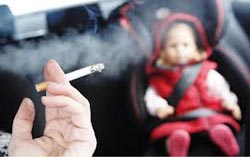Managing your asthma
Smoking and asthma is a bad match. Smoking yourself or breathing in other people’s smoke:
- damages your lungs
- makes your asthma harder to manage
- stops your asthma medicines working properly
- increases your risk of asthma attacks or
- flare-ups
As well as saving what you’d spend on cigarettes, quitting smoking may even mean you need to take less asthma medication. That’s saving you money twice over.
Quitting smoking
People with asthma who quit smoking have healthier lungs within just 6 weeks.
There are many different methods to help you quit, including gum, patches, medication, coaching or cold turkey. Some people find that using a combination of these makes the difference.
Whichever strategy you choose, you don’t have to do it alone – there are many ways to get help. Speak to your doctor, pharmacist or asthma & respiratory educator. They can give you advice and support to help you quit successfully.
Not just cigarettes
Smoking loose tobacco, chop-chop (home-grown tobacco) or joints (marijuana cut with tobacco) is just as bad as smoking regular cigarettes. Plus they’re often contaminated with molds or fungus, which can cause serious chest infections when inhaled deep into your lungs.
Keep kids smoke-free
Smoking around babies and kids damages their lungs and worsens wheezing and asthma.

Make sure babies and children have a smoke-free home and car. Remember that tobacco smoke in your hair and clothing is still poisonous. Smoking (or breathing in other people’s smoke) during pregnancy can hurt the development of your baby’s lungs and can increase the chance that your child will get asthma. If you are planning a pregnancy, you and your partner should stop smoking before the pregnancy to protect your unborn baby.
Useful tips on how to manage the most common asthma triggers:
